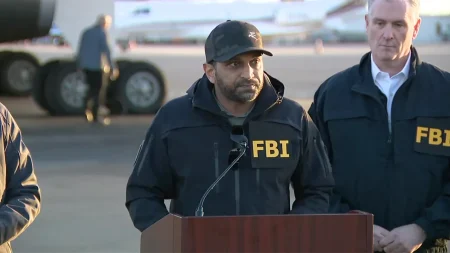Standing United Against a Divisive Force
In times of crisis, the strength of our democracy depends on the collective action of its people and institutions. When faced with a figure who threatens the very fabric of our shared values, civil society must rise to the challenge through coordinated, principled resistance. This isn’t about partisan politics but about protecting the fundamental norms that allow diverse communities to coexist peacefully in our nation.
The threat we face isn’t merely political—it’s existential to our democratic way of life. History has shown that when authoritarian figures rise to power, they often begin by undermining independent institutions, attacking the free press, and demonizing vulnerable groups. These tactics create division while consolidating power. What makes this moment particularly dangerous is how rapidly misinformation spreads through our digital ecosystem, allowing falsehoods to take root before facts can be established. Civil society organizations—from community groups and religious institutions to professional associations and educational establishments—must recognize their unique responsibility to stand as bulwarks against these divisive forces.
Our response must be multifaceted and strategic. First, we must recommit to truth and accuracy in public discourse, establishing reliable channels of information that citizens can trust. Media organizations must resist the temptation to normalize extreme behavior for the sake of appearing balanced. Second, civic education needs revitalization—teaching not just how government works but why democratic norms matter. Third, community leaders must build coalitions across ideological lines, finding common ground in shared values of fairness, dignity, and mutual respect. When diverse voices unite against authoritarianism, they demonstrate that opposition isn’t partisan but patriotic.
The strength of this coordinated response lies in its diversity. Legal experts can challenge unconstitutional actions through the courts. Business leaders can advocate for policies that promote stability and shared prosperity. Faith communities can remind us of our moral obligations to one another. Educators can equip young people with critical thinking skills to navigate complex issues. Each sector brings unique resources and perspectives to this vital work. When these efforts are synchronized—not through central control but through shared commitment to democratic principles—they create a resilient network that no single authoritarian figure can easily dismantle.
This is not an abstract concern but a practical imperative requiring immediate action. Communities must create spaces for dialogue where citizens can discuss difficult issues respectfully. Social media companies must take responsibility for how their platforms can be weaponized to spread hatred and disinformation. Philanthropic organizations should direct resources toward strengthening democratic institutions and supporting grassroots engagement. Most importantly, individuals must recognize that democracy isn’t a spectator sport—it requires their active participation through voting, volunteering, speaking out, and staying informed. The accumulated weight of these actions creates the counterpressure needed to preserve democratic norms.
Ultimately, this coordinated response reflects our collective belief that while democracy may be imperfect, it remains our best hope for creating a just society. By standing together against forces that would divide us, civil society demonstrates the resilience that has sustained our republic through previous challenges. This isn’t about opposition for its own sake, but about affirming a positive vision of a country where rights are respected, laws are fairly enforced, and power is exercised with restraint. The task before us is difficult but essential: to prove that the institutions and values we’ve built over generations are stronger than any individual who would undermine them, and to pass on to future generations a democracy more vibrant and inclusive than the one we inherited.










